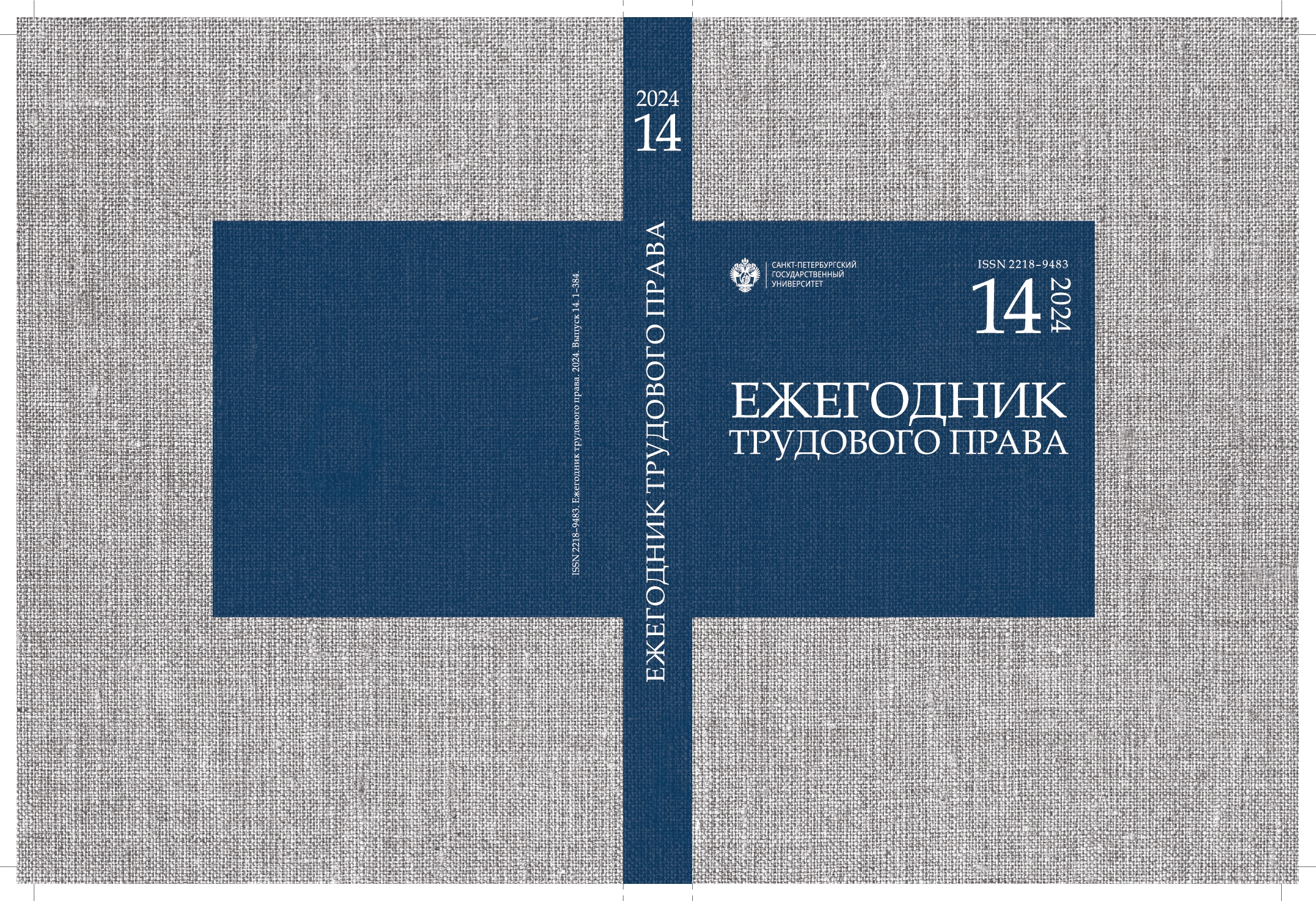Analysis of the new EU Adequate Minimum Wages Directive
DOI:
https://doi.org/10.21638/spbu32.2024.118Abstract
Although under the Treaty on the Functioning of the European Union the EU does not have competence to set minimum wages (Article 153), the EU adopted a directive on an adequate minimum wage in 2022. The aim of the directive is to encourage the convergence of national minimum wages upwards, ensuring a decent standard of living in all EU countries. The purpose of this article is to analyse the actions included in the Directive and to assess the adequacy of its legal framework. Interest in the new EU minimum wage regulations stems from the ineffectiveness of the existing and temporarily 'paused' mechanism in Russia, which links the minimum wage to 42% of the median wage. In an explanatory memorandum to the law which reformed the minimum wage in Russia in 2021, the authors refer to the "European experience". An analysis of the new EU directive showed that although it is largely advisory in nature, the EU obliges member states to ensure a decent level of the minimum wage that can be calculated on the basis of 60% of the median gross wage or 50% of the average gross wage. In addition, the EU establishes the factors to be taken into account in determining the minimum wage: the purchasing power of the statutory minimum wage in relation to the cost of living; the general level of wages and their distribution; the rate of wage growth; long-term national productivity levels and its development.
Keywords:
minimum wage, pay, European Union, directive, implementation of the EU directive.
Downloads
References
Библиография/References
Blanke, Thomas. 2002. “Fair and Just Working Conditions (Art. 31).” European Labour Law and the EU Charter of Fundamental Rights. Ed. by Bergusson B. ETUI, 69–72.
Bogg, Alan. 2014. “Art. 31: Fair and Just Working Conditions.” The EU Charter of Fundamental Rights: A Commentary. Eds S. Peers S., T. Hervey T., J. Kenner J. &, A. Ward A. (eds). Oxford: Hart, 833–868.
Eldring Line and Alsos Kristin, European Minimum Wage: A Nordic Outlook. Fafo, 2012.
Müller, Torsten, and Thorsten Schulten. 2020. The European minimum wage on the doorstep. ETUI Research Paper — Policy Brief 1/2020. February 5. http://dx.doi.org/10.2139/ssrn.3532424.
Schulten, Thorsten, and Torsten Müller. 2021. “A paradigm shift towards Social Europe? The proposed Directive on adequate minimum wages in the European Union.” Italian Labour Law e-Journal 14.1: 1–19.
Schulten, Thorsten 2008. “Towards a European Minimum Wage Policy? Fair Wages and Social Europe.” European Journal of Industrial Relations 14 (4): 421–439.
Downloads
Published
How to Cite
Issue
Section
License
Articles of "Russian Journal of Labour & Law" are open access distributed under the terms of the License Agreement with Saint Petersburg State University, which permits to the authors unrestricted distribution and self-archiving free of charge.




